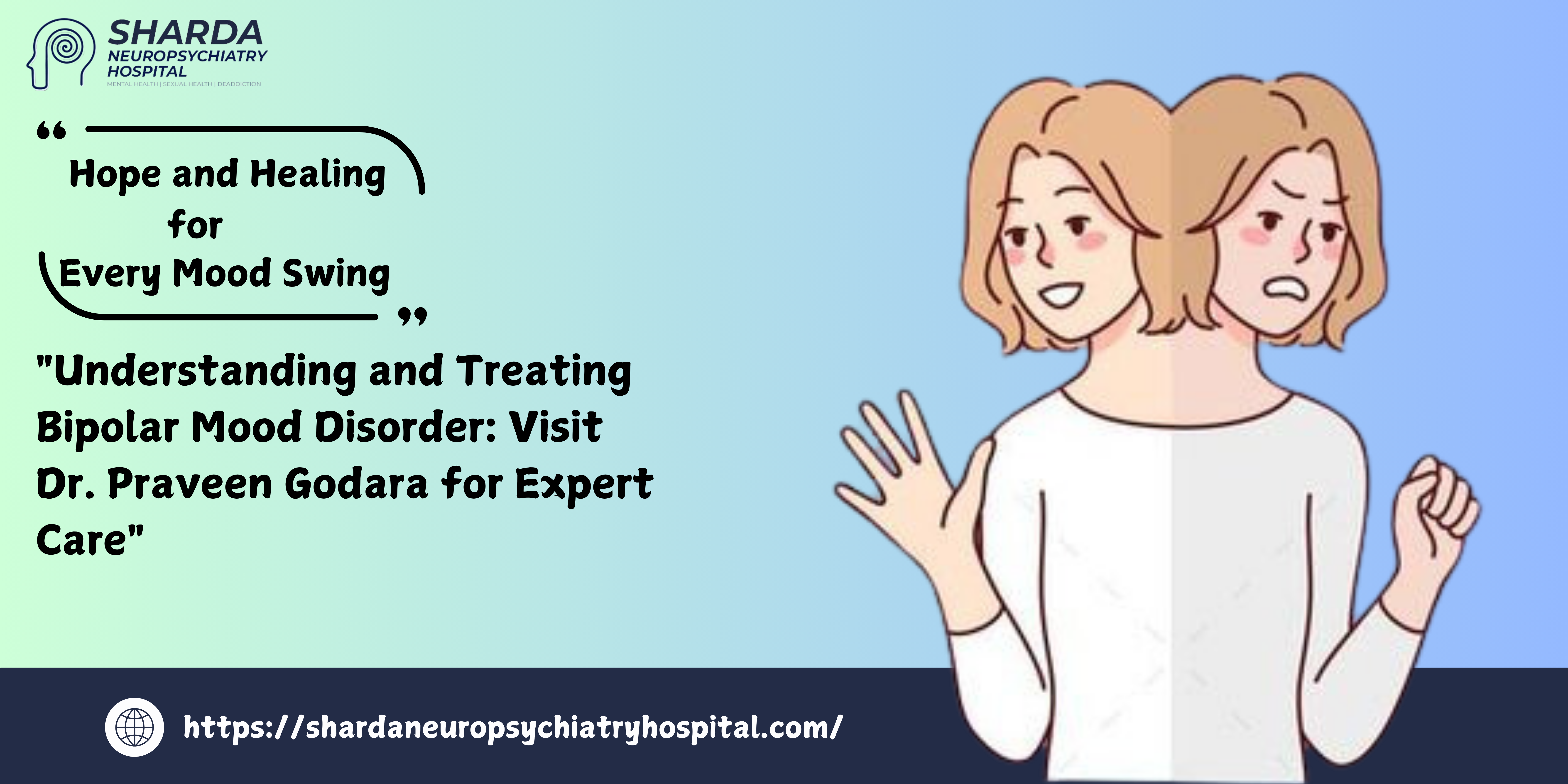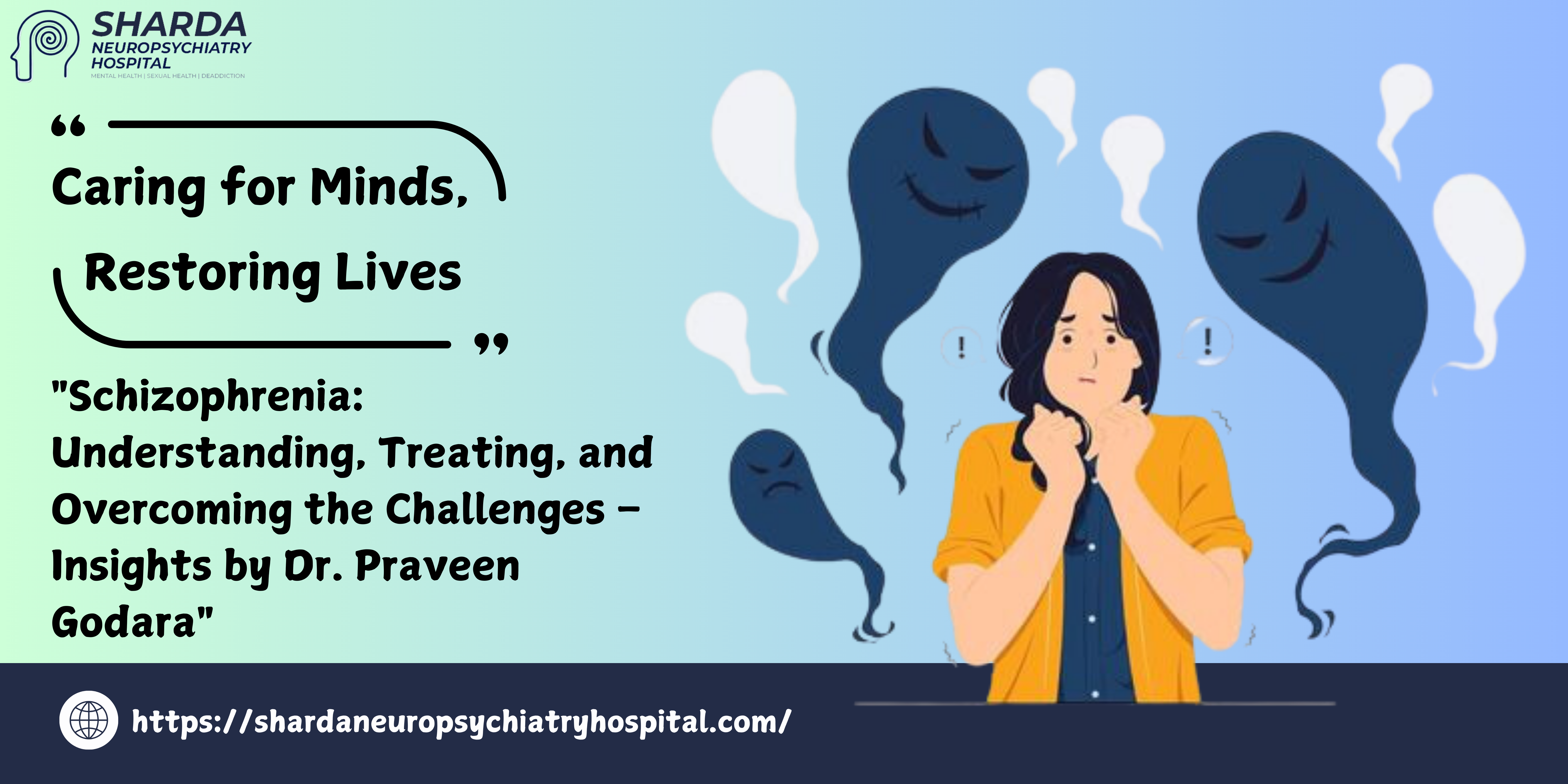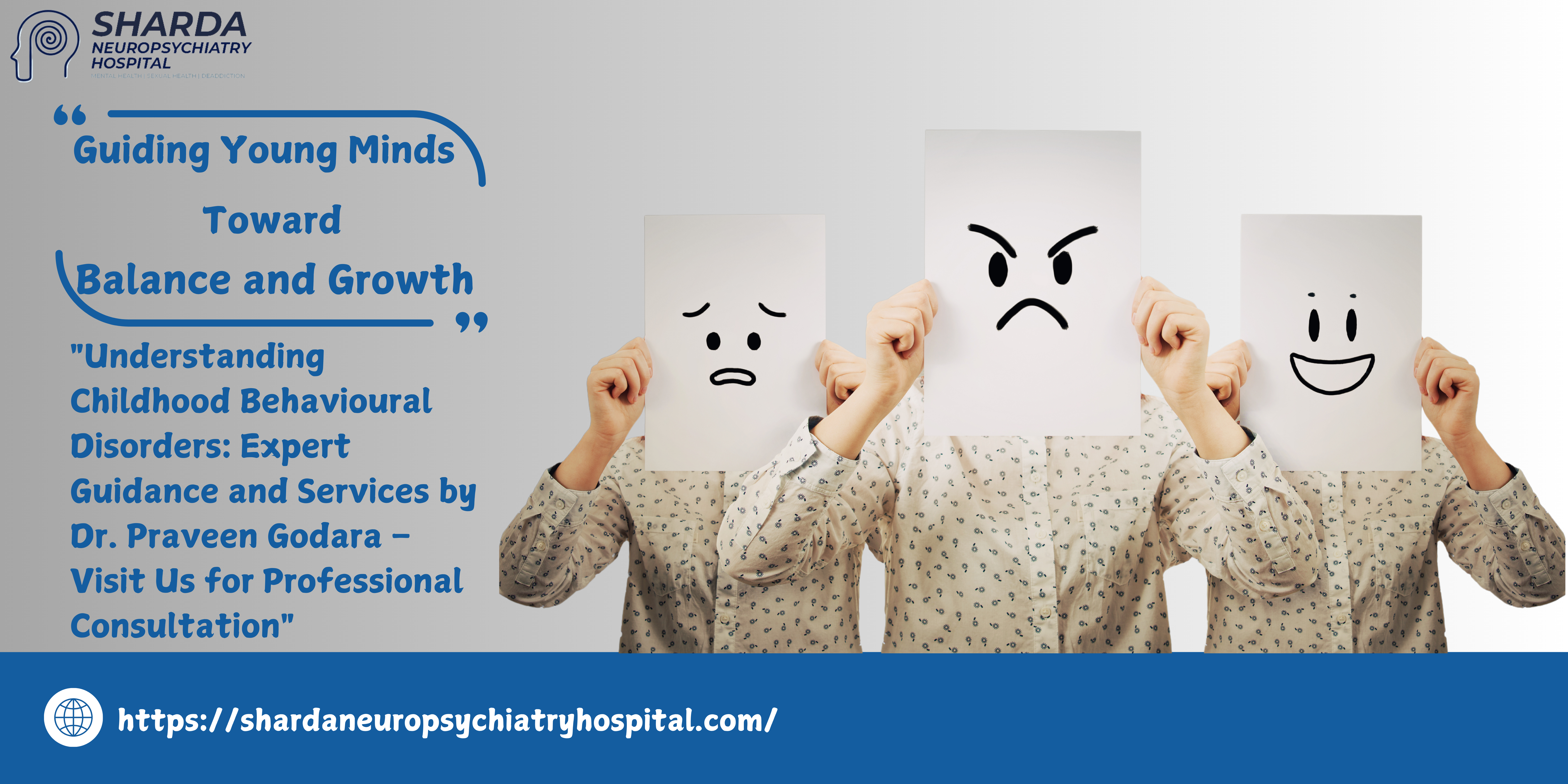Overcoming Bipolar Mood Disorder: A Guide by Dr. Praveen Godara
By Dr. Praveen Godara, Consultant Psychiatrist, Sharda Neuropsychiatry Hospital
Bipolar Mood Disorder, a condition often misunderstood, is a serious mental health disorder that causes extreme mood swings, including emotional highs (mania or hypomania) and lows (depression). At Sharda Neuropsychiatry Hospital, we believe that with proper treatment, support, and understanding, individuals with bipolar disorder can lead happy, productive lives.
Understanding Bipolar Mood Disorder
Bipolar Mood Disorder affects millions of people worldwide, disrupting their ability to think, feel, and act in ways they once did. It’s not just about feeling “happy” or “sad” — it’s about experiencing intense emotional states that can interfere with daily life.
Types of Bipolar Mood Disorder:
- Bipolar I Disorder: Characterized by at least one manic episode, often followed by depressive episodes.
- Bipolar II Disorder: Involves hypomanic episodes (less severe than full mania) and major depressive episodes.
- Cyclothymic Disorder: Alternating periods of hypomanic and depressive symptoms over at least two years without fully meeting criteria for a manic or depressive episode.
Signs and Symptoms
Manic or Hypomanic Symptoms:
- Feeling overly elated or irritable
- Decreased need for sleep
- Racing thoughts or fast speech
- Increased energy, often leading to risky behaviors
Depressive Symptoms:
- Persistent sadness or emptiness
- Fatigue or low energy
- Difficulty concentrating
- Feelings of worthlessness or thoughts of self-harm
These symptoms can vary from person to person and may even coexist in what’s known as a “mixed episode.”
What Causes Bipolar Mood Disorder?
While the exact cause isn’t clear, research points to a combination of factors:
- Genetics: A family history of bipolar disorder increases the risk.
- Brain Chemistry: Imbalances in neurotransmitters like dopamine and serotonin may play a role.
- Life Events: Stress, trauma, or major life changes can trigger episodes.
Treatment for Bipolar Mood Disorder
Bipolar Mood Disorder is a lifelong condition, but effective treatments can help manage symptoms and improve quality of life. At Sharda Neuropsychiatry Hospital, we provide a comprehensive and personalized approach to care.
1. Medication:
Mood stabilizers, antipsychotics, and sometimes antidepressants are used to manage the highs and lows of bipolar disorder.
2. Psychotherapy:
Therapeutic interventions like Cognitive Behavioral Therapy (CBT) can help patients understand their symptoms, recognize triggers, and develop coping mechanisms.
3. Lifestyle Management:
Establishing routines, ensuring adequate sleep, and engaging in physical activity can significantly reduce the risk of episodes.
Why Visit Sharda Neuropsychiatry Hospital?
At Sharda Neuropsychiatry Hospital, we understand the complexities of bipolar mood disorder. Our team, led by experienced professionals, including myself, Dr. Praveen Godara, is dedicated to providing the highest level of care.
Here’s what we offer:
- Comprehensive Diagnosis: A thorough evaluation to ensure an accurate diagnosis.
- Personalized Treatment Plans: Tailored therapies to suit individual needs.
- Supportive Environment: Compassionate care for both patients and their families.
We aim to not just treat the disorder but to empower individuals to regain control over their lives.
Take the First Step Towards Recovery
Bipolar Mood Disorder can feel overwhelming, but you don’t have to face it alone. Seeking professional help is the most important step you can take. At Sharda Neuropsychiatry Hospital, we are here to walk this journey with you.
Why Choose Us?
- State-of-the-art facilities
- Expert-led treatment protocols
- Commitment to holistic mental wellness
A Message from Dr. Praveen Godara
Mental health is just as important as physical health. Bipolar Mood Disorder is a manageable condition, and with the right treatment and support, you can lead a fulfilling life.
If you or a loved one is struggling with symptoms of bipolar mood disorder, I encourage you to visit us at Sharda Neuropsychiatry Hospital. Let us help you overcome this disorder and find your path to healing.
Don’t let bipolar mood disorder define you. Take control today.
Dr. Praveen Godara
Consultant Psychiatrist, Sharda Neuropsychiatry Hospital.



